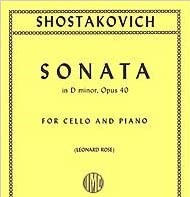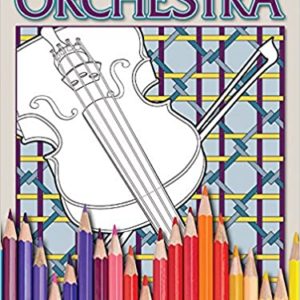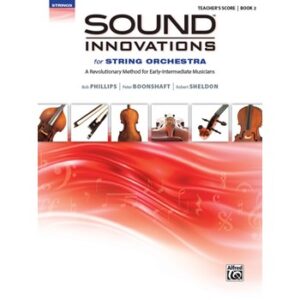Category: Cello Books- Sheet Music
Sonata in D minor for Cello and Piano, Op. 40 Dmitri Shostakovich Internation Music Comapny IMC No2087
Cello and piano – Difficulty: difficult
Composed by Dmitri Shostakovich (1906-1975). Edited by Leonard Rose. 20th Century. Instrumental solo book. With solo part and piano accompaniment. Composed 1934. 47 pages. International Music Co. #2087. Published by International Music Co. (IM.2087).
Item Number: IM.2087
One of the most well-rehearsed stories of political oppression and music in the 20th century is that of Shostakovich’s opera Lady Macbeth of Mtsensk and Stalin’s belated critical reaction to it. Opening almost simultaneously in Leningrad and Moscow in January 1934, the opera ran very successfully for two years, with 180 performances in those two cities and a bevy of European and U.S. premieres, when an anonymous review in Pravda (thought to be the work of Stalin himself) savaged the work as “Muddle Instead of Music,” instantly reconfiguring Shostakovich’s career arc.
What is seldom noted about the incident, however, is that on the day the Pravda article appeared, Shostakovich was in Archangelsk, playing his Cello Sonata with his friend Viktor Kubatsky (the dedicatee of the work). Composed in 1934 shortly after Lady Macbeth, the Sonata is everything Pravda said his opera was not: disciplined, classically proportioned, sonorous, and eminently lyrical.
Up to this point, Soviet cultural policy had not been extremely restrictive, although theater and literature were closely monitored, and Shostakovich’s personal development had been all over the map. Each of his first three symphonies was experimental in different ways and his theater music – which included ballets, film scores, and incidental music, as well as operas – was largely satiric. He wrote dance music imitating Western idioms and delighted in tweaking establishment sensibilities.
The only big chamber piece before the Cello Sonata, his Piano Trio No. 1, Op. 8, is a sprawling 20-minute, single movement student work that unexpectedly won Shostakovich admission into the graduate composition course at the Moscow Conservatory, to which he wanted to transfer from the more restrictive Leningrad Conservatory. “They decided to regard the Trio as my sonata form piece, and immediately I was accepted on the free composition course… In Leningrad they would never have accepted the Trio as my sonata form test piece. What stupid formalists.”
Even the Leningrad conservatives, however, would have had little trouble with the textbook sonata form of the first movement of the Beethovenian Cello Sonata. It even has a repeated exposition, for the first time in Shostakovich’s music, and its themes have the sharp character contrast – serious intellectual energy against expressive tenderness – common to Romantic era “masculine” and “feminine” stereotypes. (They are also severely differentiated in key: the second theme is in the remote key of B major.) Given that the work was composed in a few weeks while Shostakovich was separated from his first wife, many commentators have read romantic turmoil into the movement. The ending would have puzzled the “stupid formalists,” however – a slow, ghostly restatement of the main theme, chromatically reharmonized.
There is more than a hint of satire in the biting, quasi moto perpetuo second movement, but its industrial strength dynamism echoes the energy of many a Beethoven scherzo, as does the swapping of lines between cello and piano. If this movement is the closest in spirit to Shostakovich’s earlier music, the long-spanned brooding cantilena of the following Largo most readily summons presentiments of the composer’s late style, though it is far less angular and more compassionate than desolate, with an almost Schubertian degree of lyrical grace.
The finale is again athletic. It was composed for his own performing use, like the 24 solo Preludes and Piano Concerto No. 1 from the previous year, and it makes a ready impression, with technique and sass amply displayed in both parts. The piano even has a pell-mell cadenza in the second episode of this rondo-like movement of spare textures but extreme energy.
Upcoming Events
Original price was: $23.00.$21.75Current price is: $21.75.

Curbside Pickup Now Available
Hoffmann Strings is Buffalo Grove's Favorite Violin Shop Serving the community quality music Since 1997. We are your Only choice in Quality Instruments! Stop in and come visit our staff to make that great selection to help you in our many great choices.
View Hours & Location
Top of the Line Instrument Cleaning
Virus Free! We take pride in our instrument Cleaning





